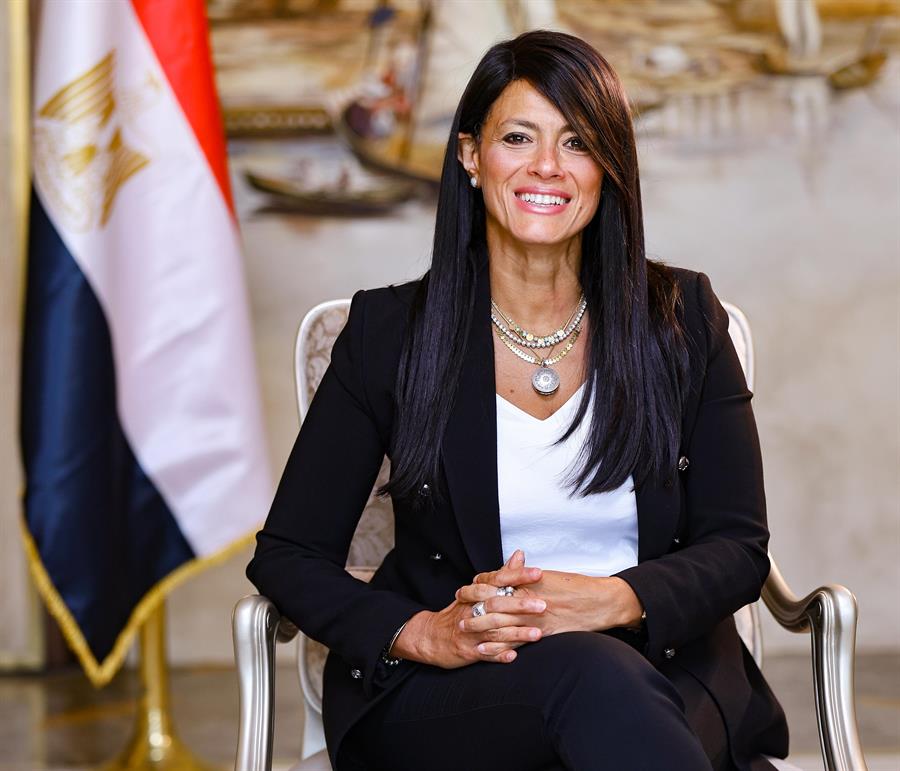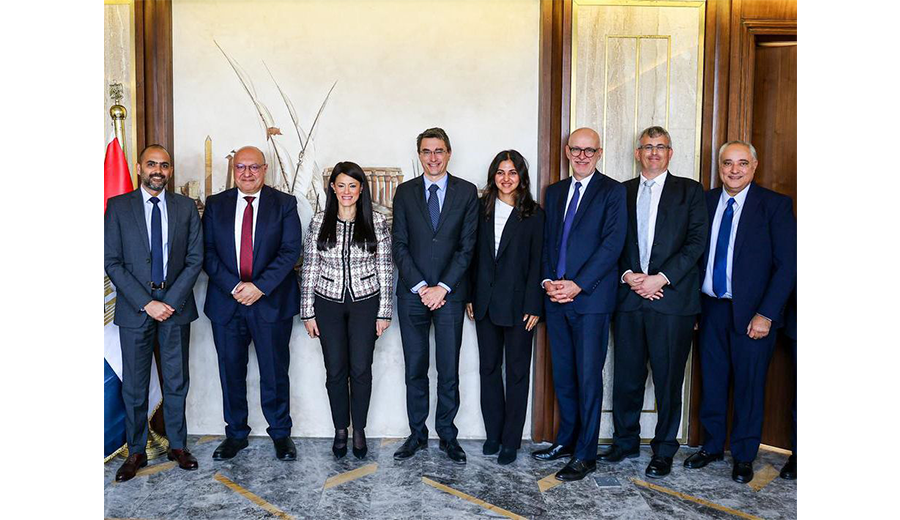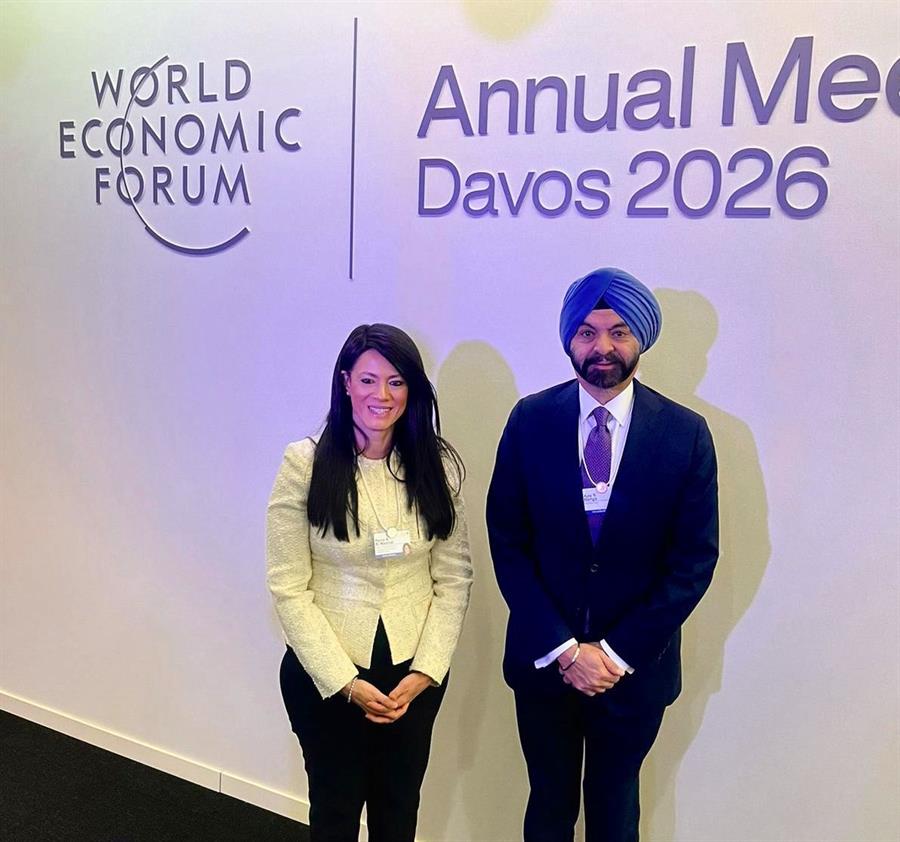Minister of Planning, Economic Development, and International Cooperation during her participation in the Akhbar Al-Youm Economic Conference
08 February 2025
Minister of Planning, Economic Development, and International Cooperation during her participation in the Akhbar Al-Youm Economic Conference:
The government is working according to a clear plan to enhance macroeconomic stability and strengthen its resilience against global changes.
Tomorrow, the National Wages Council (NWC) will meet to discuss the minimum wage for the private sector in light of recent economic developments.
The government will continue to implement the National Structural Reform Program to create a better business environment and open new avenues for private sector participation in development efforts.
We are closely monitoring compliance with the public investment ceiling to allow more opportunities for the private sector to lead economic development efforts.
We have completed the preparation of the Foreign Direct Investment and Industrial Development Strategies in coordination with the relevant ministries to establish a clear vision for attracting investments and localizing industry.
The framework of the Ministry of Planning, Economic Development, and International Cooperation strengthens the state's focus on transforming to productive sectors and growth based on investment and exports.
The Ministerial Group for Entrepreneurship is working on developing a unified financing initiative to support over 5,000 startups and increase investments in the sector.
The Egyptian economy is showing positive developments despite the surrounding regional and international tensions, with the manufacturing sector leading growth in the first quarter of the fiscal year.
The recovery of the Purchasing Managers' Index (PMI) in January, recording the best performance in four years, reflects the positive impact of structural reforms and government actions to empower the private sector.
We allocated 7 billion Egyptian pounds from the reserves to enhance the electricity grid’s capabilities and support it with renewable energy projects.
We are working on preparing the Growth and Employment Report: the National Narrative for Economic Development, which includes an executive plan for economic targets and national strategies in coordination with the relevant ministries and authorities.
The international community must play its role in transforming towards a more efficient and equitable global financial structure in response to the challenges of developing countries.
H.E. Dr. Rania A. Al-Mashat, Minister of Planning, Economic
Development, and International Cooperation, participated in the opening session
of the Akhbar El-Youm Economic Conference, which was held under the title
"Industry and Investment... The Government and the Private Sector...
Together We Can." The session was attended by Lieutenant General Eng. Kamel
Al-Wazir - Deputy Prime Minister for Industrial Development and Minister of
Transport and Industry, Dr. Mahmoud Esmat, Minister of Electricity and
Renewable Energy, Mr. Ahmed Kouchouk, Minister of Finance, Eng. Abdel-Sadek
El-Shorbagy, Chairman of the National Press Authority, Mr. Islam Afifi,
Chairman of the Board of Directors of Akhbar El-Youm Foundation, and many
representatives from the private sector, business community, and members of
Parliament.
H.E. Dr. Rania Al-Mashat also participated in the first
session of the conference, which focused on the industrial sector as a driver
for economic development in Egypt, alongside a group of investors and
industrialists.
In her speech, the Minister of Planning, Economic
Development, and International Cooperation explained that the Egyptian
government works according to a clear and specific plan aimed at establishing
macroeconomic stability, supporting its resilience against global changes,
enhancing the flexibility of fiscal policies, improving the business
environment, providing job opportunities for youth, and protecting the most
vulnerable groups through comprehensive and sustainable social programs.
H.E. Dr. Al-Mashat added that the government prioritizes
industrial development, human development, and entrepreneurship, which is
reflected in the formation of specialized ministerial groups. This reflects the
state’s focus on export-promoting sectors and localizing industries, with
attention to human resource development and creating opportunities for startups
and entrepreneurs to promote innovation and a knowledge-based economy.
H.E. Minister Al-Mashat stated that while macroeconomic
stability is essential, it is not sufficient for achieving economic
development. Therefore, the government continues to implement the national
structural reform program, during which many measures have been taken to
improve the business environment and open up opportunities for private sector
participation, including the implementation of an electronic investment
licensing system, issuing energy origin certification regulations, and issuing
a law regulating state ownership in companies it owns or participates in, among
other measures.
H.E. Dr. Al-Mashat also mentioned that the government has
set a ceiling for public investments at one trillion pounds and the role played
by the Ministry of Planning, Economic Development, and International
Cooperation in monitoring compliance with investment targets across all state
entities to open more opportunities for the private sector to lead the
development wheel and achieve sustainable growth. The government also activated
the Unified Public Finance Law to set an annual ceiling for public debt and
determined an annual borrowing limit based on financial sustainability criteria.
H.E. Dr. Al-Mashat highlighted the results of these efforts,
which reflected in the private sector’s share of investments, accounting for
63% in the first quarter of the current fiscal year. Furthermore, financing
directed to the private sector exceeded that for the government in 2024 for the
first time.
The Minister of Planning, Economic Development, and
International Cooperation also noted that the ministry has been working closely
with the Ministries of Investment and Foreign Trade, and Industry to formulate
a strategy for enhancing foreign direct investment in Egypt (2025-2030), as
well as the national industrial development strategy and trade enhancement in
cooperation with the World Bank Group. She added that both strategies provide a
clear roadmap and specific objectives to enhance the country's vision for
attracting foreign direct investment and localizing industries, in line with
Egypt’s Vision 2030, ensuring the country benefits from its vast resources and
capabilities effectively.
H.E. Dr. Al-Mashat affirmed that this serves as a live and
effective example of the importance of linking planning, economic development,
and international cooperation files, which is one of the key structural reforms
recently adopted by Egypt by merging these ministries to link economic plans
with cooperation with international institutions, thus improving the investment
climate and enhancing international partnerships to support the national
development agenda.
H.E. Minister Al-Mashat touched on the ministry's framework,
which focuses on enhancing economic growth, increasing productivity, driving
investment-based growth, and diversifying the structure of Egypt’s economy to
shift from non-productive sectors to productive sectors that contribute to
increasing exports, relying on private sector investments. She indicated that
the ministry is currently preparing a report on growth and employment: the
national narrative for economic development, which includes an executive plan
for economic targets and national strategies in coordination with the relevant
ministries and entities.
H.E. Dr. Al-Mashat also referred to the ministerial group
for entrepreneurship, pointing out that the group approved in its latest
meeting, chaired by the Prime Minister, the unified definition of startups,
along with several incentives, facilities, and a proposal for a unified
financing initiative for the sector, targeting more than 5,000 companies,
including 500 companies attracting investments of over one million dollars, to
enhance Egypt’s position as a regional hub for startups.
H.E. Minister Al-Mashat pointed to the positive development
in Egypt’s economy during the first quarter of the current fiscal year, recording
a 3.5% growth, with the recovery of vital and productive sectors such as
non-oil manufacturing industries, and continued growth in sectors like
telecommunications and information technology, tourism, transportation, and
storage. While regional and international challenges increase, Egypt’s economy
is progressing steadily through measures taken by the state to maintain its
stability and achieve the desired progress, with an expected growth rate of 4%
by the end of the fiscal year. Recently, many positive indicators have been
observed, including the increase in the Purchasing Managers’ Index to 50
points, achieving the best performance in four years, supported by the rise in
production and sales in the non-oil private sector.
H.E. Minister Al-Mashat emphasized that what distinguishes
economic growth is not only its quantity but also the quality of growth,
particularly the development of vital sectors such as non-oil manufacturing
industries, reflecting the state's direction towards transforming into productive
sectors that drive export rates.
The Minister of Planning, Economic Development, and
International Cooperation revealed that, in light of recent economic
developments, the National Wages Council is scheduled to meet on Sunday to
discuss the minimum wage for the private sector.









